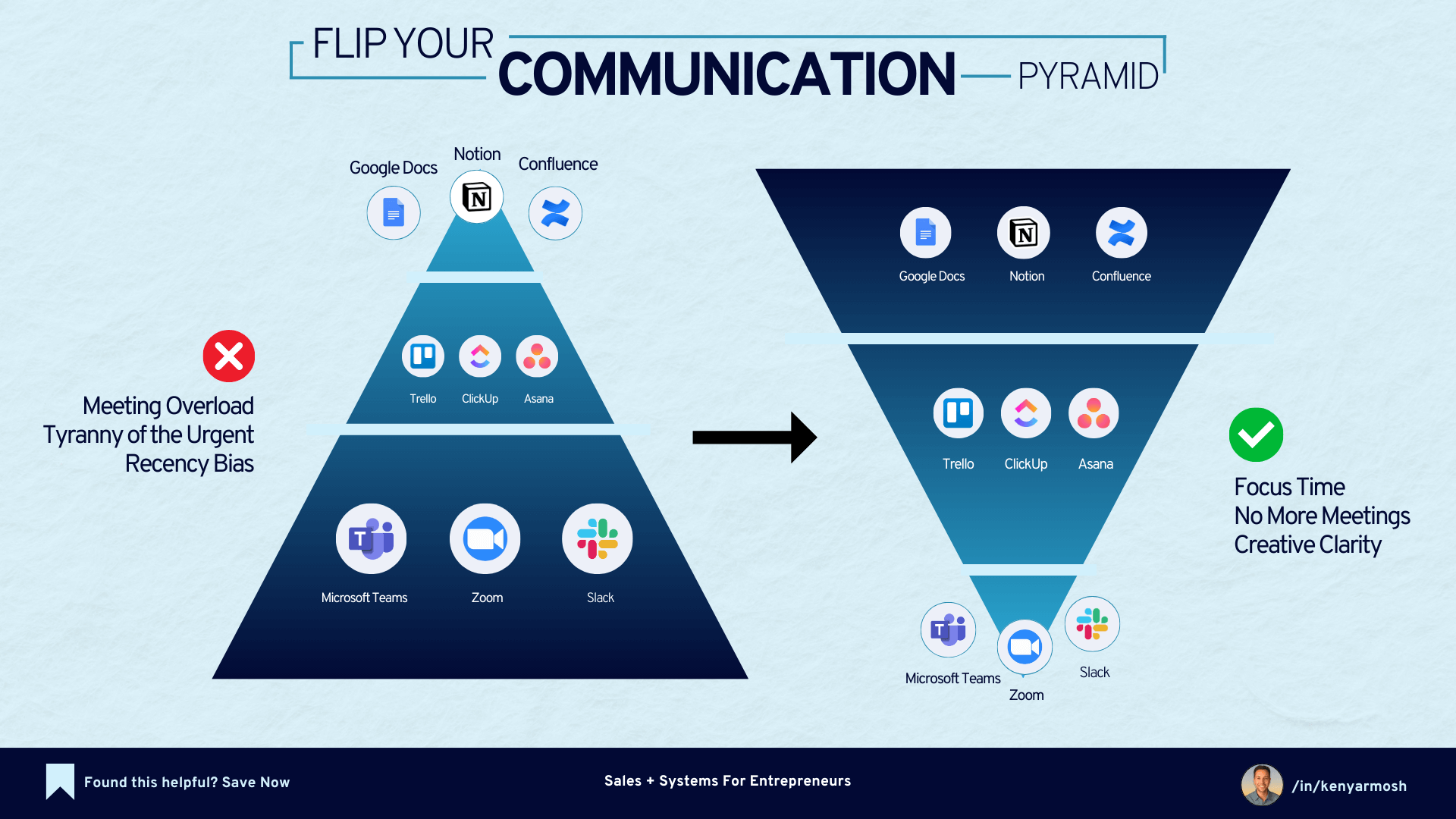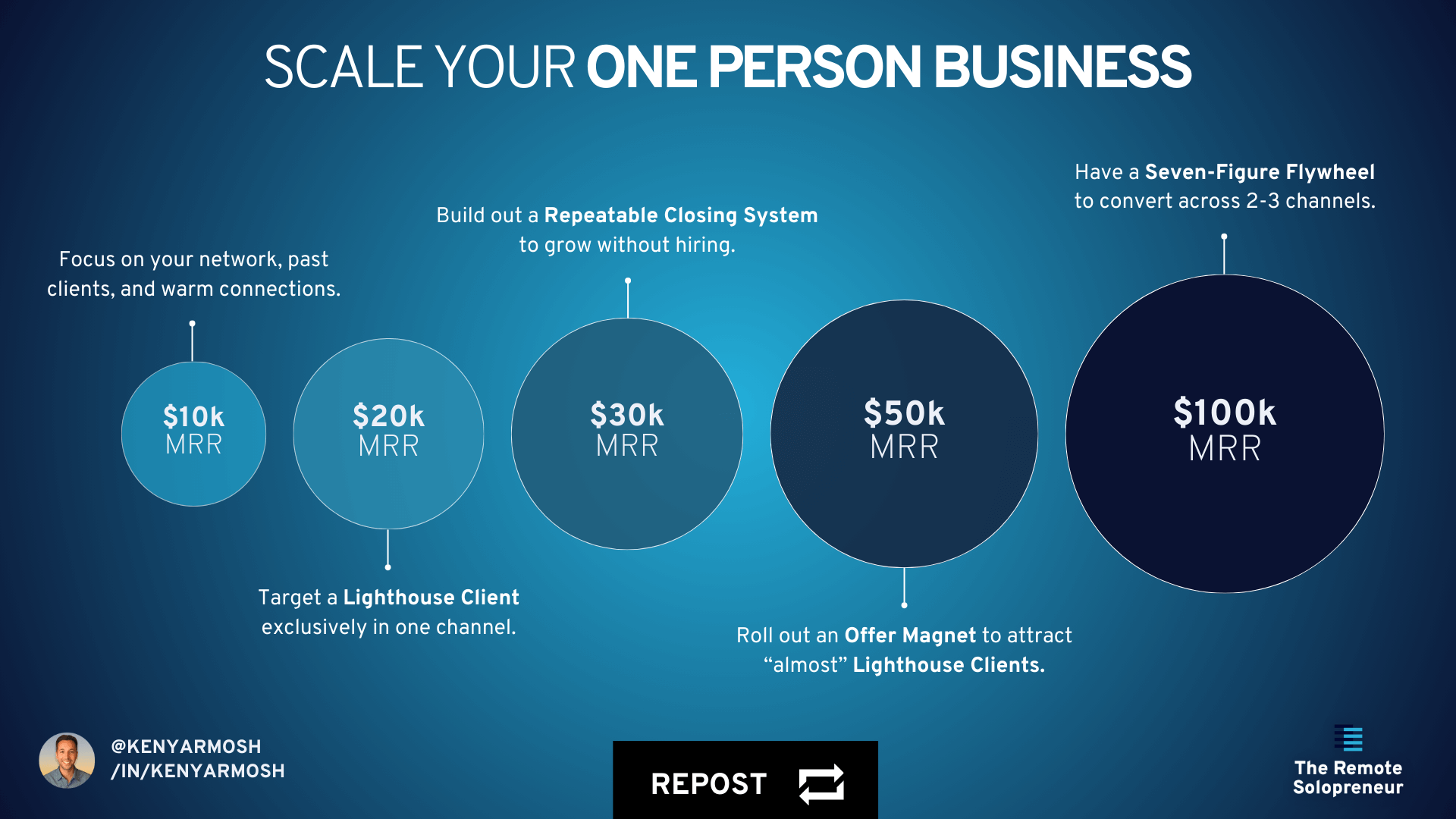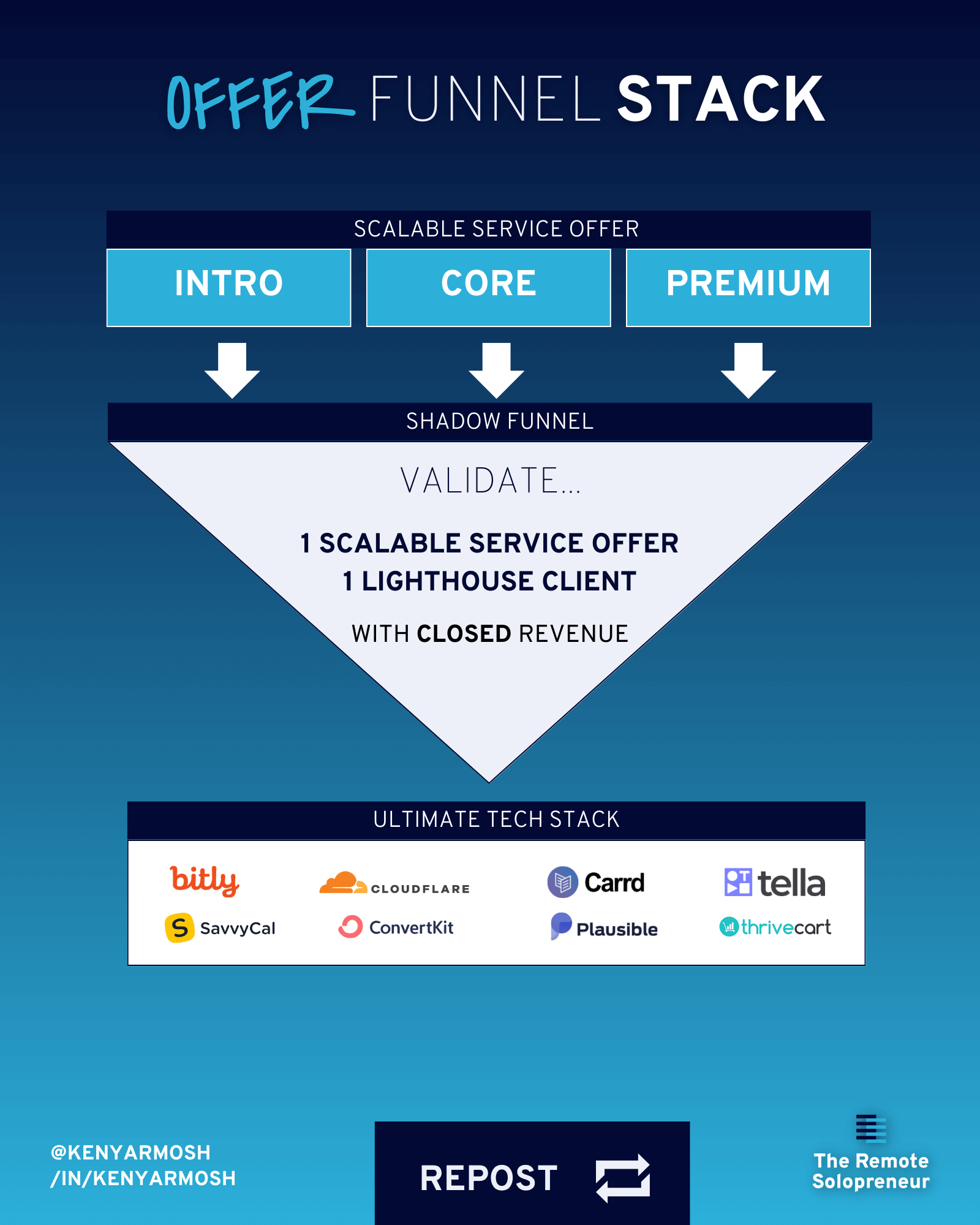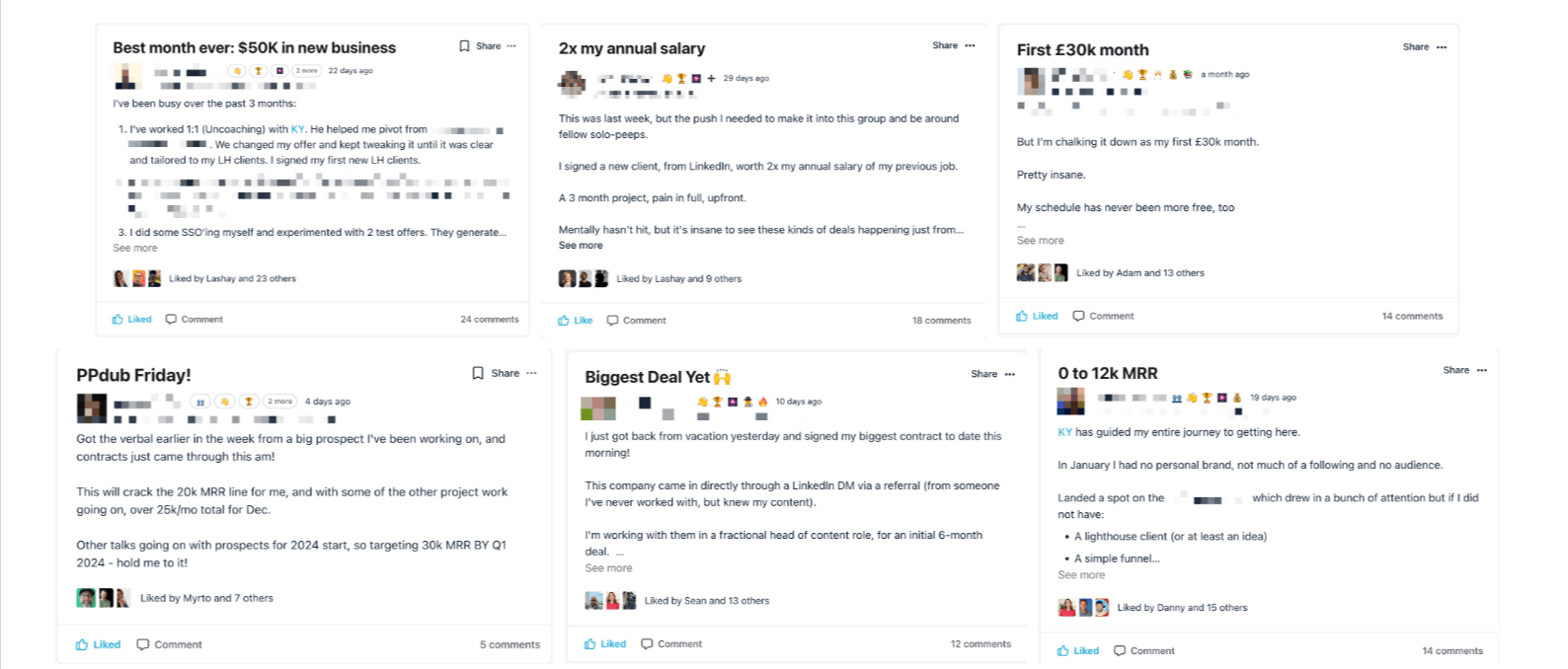🚀 TL;DR
- A “one-person business” (or solopreneurship) is not just freelancing—but a deliberate model built around leverage, systems, and automation to maximize scale while being alone.
- Success depends on focusing on a high-value niche, packaging your offers, validating demand early, and building operational systems that reduce dependence on your daily input.
- One-person businesses can reach high revenue, but they hit natural ceilings unless you use tools, outsource selectively, streamline operations, and maintain tight boundaries.
- Loneliness, decision fatigue, and lack of external checks are real risks; strong support systems, communities, and advisors are vital for sustainability.
- In choosing this path, define your own idea of success (not in comparison to big startups), and continuously refine rather than chasing perfection from day one.
The remote work revolution has permanently altered how we think about business. Since founding my first remote venture in 2005, I’ve watched big corporations struggle to adapt while nimble one-person businesses thrived.
Most aspiring entrepreneurs don’t realize that you don’t need a team, VC funding, or even an elaborate business plan to create something sustainable and profitable.
What you need are systems that scale your capabilities, not your headcount.
I’ve spent years helping hundreds of solo business owners escape the freelance trap and build something that truly works on their terms.
In this article, I’ll show you how the one-person business model works and why it might be your path to fulfillment and financial freedom.
Why choose a one-person business model?
When I started my business, everyone told me I needed to hire employees to be "legitimate." But I discovered something powerful: building a one-person business offers distinct advantages that make it increasingly attractive.
Here’s why:
You get higher profit margins
When I operated without employees, my profit margins significantly exceeded those of traditional businesses. Without the overhead of salaries, benefits, and office space, I kept a much larger percentage of my revenue.
Many of my coaching clients maintain 60-80% profit margins in their solo businesses, compared to the 10-20% typically seen in employee-heavy companies. This means you can earn a substantial income without needing massive revenues to support infrastructure.
You’ll need lower startup and operational costs
I launched my business with a laptop and a few software subscriptions that cost less per month than a single day’s salary for an employee. This low overhead meant less financial risk and greater resilience during economic downturns.
The flexibility is incredible. Need to work around family commitments? Want to take a month off? Prefer focusing intensely for shorter periods? The solo model accommodates all of this without requiring approval from anyone else.
You get complete autonomy and flexibility
You can launch a one-person business in a weekend. The hard part isn’t building — it’s committing to the long game of showing up.
A solo operation gives you complete control over your work environment, client selection, pricing structure, and schedule.
Need to work around family commitments? Or prefer focusing intensely for a shorter period? The solo model accommodates all these scenarios without requiring approval or coordination with employees or partners.
Also, without the complexity of managing team transitions or retraining staff, you can quickly respond to opportunities.
You get the ability to pivot quickly
Solo businesses can quickly respond to market changes, opportunities, and challenges. As seasons change (and market conditions), I can roll out different offers faster than bloated businesses.
Many of my clients do the same, navigating market shifts that buried their larger, less agile competitors.
This adaptability provides a significant competitive advantage, especially in today’s economy.
You can focus on expertise rather than management
A solo business works best when it reflects your obsessions. You’re not scaling a company — you’re scaling your curiosity.
Every creator I know who made it work started with one small thing: a newsletter, a Notion template, or a PDF guide. They didn’t wait to be ready.
Also, I’ve discovered that as soon as you hire employees, a substantial portion of your time shifts from delivering value through your expertise to managing people. The solo model lets me focus entirely on what I do best, without diluting my energy with hiring, training, and supervision.
This focus typically results in higher-quality work and greater satisfaction, as you spend your days using your core skills rather than becoming a reluctant manager.
What are the key characteristics of a successful one-person business?
Not all solo operations are created equal. There’s a difference between a freelancer constantly trading time for money and a strategic one-person business with leverage and scalability built into its foundation.
Let’s look at what truly makes these lean operations work at scale:
Involve a solo owner and operator
At its core, a one-person business maintains complete control over all aspects of the operation. I’ve embraced my solo status rather than apologizing for it. And I position it as a strength that gives clients direct access to me without layers of management.
My days are not filled with meetings to reach consensus, no politics, and no watered-down versions of my vision.
Also, the most successful businesses I’ve seen are inseparable from the personal brand of their owner. This doesn’t mean becoming an influencer—it means communicating your unique approach consistently across all touchpoints with potential clients.
Low overhead costs
I’ve maintained intentionally lean operations in my business, investing strategically in tools that multiply my capabilities rather than adding fixed costs. This approach created higher profit margins, lower revenue requirements, and greater flexibility to adjust as markets changed.
Also, solopreneurs or one-person business owners are ruthless when they evaluate every expense against its impact. They avoid status purchases and focus on tools that create genuine leverage.
Flexible structure and autonomy
One-person businesses thrive on adapting quickly and operating according to the owner’s strengths and preferences. This flexibility extends to:
- Working hours and location freedom
- Client selection and project types
- Pricing models and payment structures
- Service delivery methods
- Marketing approaches and channels
Rather than forcing myself to fit traditional business models, I designed my operations around my unique capabilities and constraints. For instance, I work best in focused 3-hour blocks in the morning, so I’ve structured my entire client communication and delivery system around this pattern.

Scalable business (with the right offer and systems)
Contrary to popular belief, one-person businesses can scale significantly without adding employees. The key lies in creating leverage through:
- Systematized operations that minimize redundant work
- Strategic use of technology to automate repetitive tasks
- Clear boundaries and well-defined offers that prevent scope creep
- Value-based pricing rather than hourly rates
- Digital products or membership models that generate recurring revenue
- Selective use of contractors for specialized tasks

The most successful solo businesses relentlessly focus on increasing their revenue per hour rather than simply working more hours. This might mean developing proprietary frameworks, templates, or knowledge bases.
Direct client relationships
Larger organizations usually have client relationships distributed across account managers, project managers, and delivery teams. On the other hand, successful one-person businesses maintain direct connections with their clients.
This direct relationship creates several advantages as they can communicate faster, understand clients better, and build loyalty in the long term,
The most successful solo operators see these direct relationships as a core competitive advantage that larger competitors cannot easily replicate.
How to start a one-person business?
Starting a one-person business doesn’t require elaborate planning or significant capital. What it does require is intentional design and strategic focus from day one.
Many professionals overthink the launch process. They believe they need perfect branding, fancy service offerings, and polished systems before starting. You’ll land up with analysis paralysis and won’t take action.
Here’s how to avoid that and build a one-person business:
Step 1: Choose a business idea
The foundation of your one-person business should be the intersection of three key elements:
- Your expertise: What skills and knowledge have you developed through your career that create genuine value?
- Market demand: Which problems do people or businesses consistently need to be solved? Where are they willing to pay premium rates for solutions?
- Your interests: What work can you imagine doing consistently for the next 3-5 years without losing motivation?
For example, rather than positioning yourself as a “marketing consultant,” you might focus specifically on “email retention strategies for SaaS businesses” or “launch campaigns for professional service firms.”
Consulting services are great but you need to dial into the problem. The narrower your initial focus, the faster you’ll establish authority and refine your delivery systems.
Step 2: Validate quickly and define your offer
Before investing significant time or resources, I recommend validating your concept through direct market interaction. I learned this lesson the hard way after spending months building an offering nobody wanted.
Start by conducting targeted interviews with potential clients about their challenges. Offer a limited version of your solution to a small group at an introductory rate. You can also create content addressing the problem you solve and measure engagement.

Then define a single, clearly focused offer. I’ve seen clients who used to offer just “marketing services,” and are unable to differentiate. Instead, as an example, offer a “60-Day Email Reactivation Program” with specific components, timeframes, and deliverables. This allows you to refine your delivery process through repetition and build systems that increase efficiency.
Step 3: Handle the basics and launch
For most one-person businesses, using your personal name with a descriptor of your focus area provides clarity and authenticity. Keep your legal structure simple to start—you can always change it as you grow.
Make sure you set up the foundational elements:
- Separate business bank account
- Simple accounting system
- Templatized client contracts
- Basic onboarding and delivery systems
They don’t need to be complex, but establishing them early creates professional credibility. For example, a Google Doc with a “Work With Me” section and your general scope and timeline are more than enough for onboarding initially.
Then, launch with what I call a “soft launch.” Inform your professional network about your new focus, reach out directly to 5-10 potential ideal clients, and offer a limited number of initial engagements at your standard rate.
This approach generates real client work while giving you space to refine your systems and approach based on actual market feedback.
What challenges can you expect to face while building a solo business?
Let me be candid about the challenges I’ve faced in my business journey. These are the same issues I see in nearly all the solopreneurs I coach:
Your sales systems might not be good enough
The most immediate challenge I’ve seen is establishing a health pipeline. During busy delivery periods, I’ve seen that my clients used to find it nearly impossible to maintain sales momentum. This created feast-or-famine cycles that were extremely stressful.
I solved this by creating systematic marketing and sales approaches for them, requiring minimal ongoing effort. They iterate on a simple, repeatable sales process and refine it till it works for them.
You might deal with imposter syndrome
I’ve experienced intense self-doubt, particularly when scaling to higher-value clients, and I see the same thing with clients. Despite delivering exceptional value, they tend to underprice services and hesitate to pursue ideal clients because they don’t feel ready.
I learned that imposter syndrome isn’t something you eliminate once and for all. It’s a recurring challenge that requires ongoing management. I’ve learned to act effectively despite it, recognizing that these feelings are normal for growth.
One way to do that is to set up a “wins” folder. Document positive client feedback and results to review during periods of doubt.

You might get overwhelmed and lack focus
There’s an abundance of business advice out there, creating a paradox of choice for most solopreneurs. Without the filtering mechanism of a team, you can become overwhelmed with conflicting recommendations and shiny new approaches.
So, you tend to switch strategies at breakneck speed and don’t see results from any of them. That’s why I recommend choosing a limited number of trusted sources.
Also, you might struggle with prioritization without the structure of external deadlines or management direction. The freedom that attracts you to solopreneurship becomes a liability without internal discipline.
So, establish quarterly strategic priorities with specific success metrics. Bench “nice-to-try” items for later and prioritize what needs to be done first. I use weekly planning rituals to align daily work with these larger goals, which keeps me on track.
You might not have proper feedback loops in place
Without colleagues to provide regular feedback, you can lack the perspective you need to identify blind spots or gauge your actual progress. It can make it difficult to objectively assess the quality of your work and limit your perspective on market trends.
Conduct regular check-ins with trusted peers who understand your business and offer fresh perspectives. For example, I created formal client feedback mechanisms to understand the value of my work and their current priorities. Similarly, if you can get mentorship to improve one aspect of your skill or business, do it.
It’s your turn to build a sustainable one-person business
The one-person business model represents a fundamental shift in entrepreneurship. Today, more professionals are choosing this path as a deliberate strategy to create a better life for themselves.
I recommend starting with a small but narrow focus and getting that going first. When you have a validated offer, hit the gas on the pedal and turn this into a profitable one-person business.
The tools are available, the market is receptive, and many successful solopreneurs have walked the path before you. Now, it’s time for you to take the first step.

